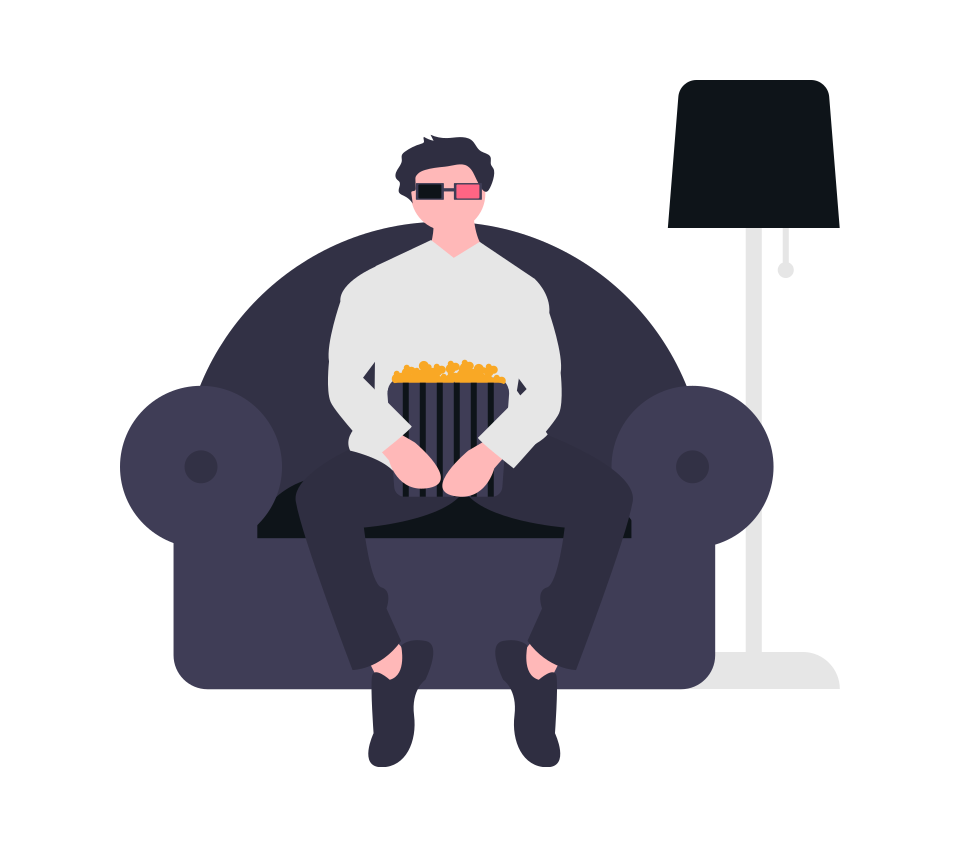Beware, you might lose your brain to binge-watching

Nothing’s more enticing than an endless Netflix night, right? Just episode after episode of your favourite show. Sounds cool.
But it’s not. In a study conducted by University of Toledo that analyzed people’s TV habits, people identifying themselves as binge-watchers reported higher levels of anxiety and depression than the regular TV viewers.
So, what’s happening? Why is it that we love binge-watching so much even though it has several downsides?
To put it in one line: Binge-watching is like getting high with narcotics. Your body gets addicted to the high levels of dopamine released as you indulge in compulsive video consumption. Your body doesn’t differentiate between pleasure, it just craves dopamine hits.
The act of binge-watching leads you to miss out on more important events and commitments in your life. You strangely start identifying yourself as a part of the video series. You start living in an imaginary world with imaginary things that you miss in your life like money, fame, power, and social bonding. It puts you in an endless stream of dissatisfaction. You never feel complete and contempt and instigate depression. And that’s the reason it feels good to see your favourite character own thirteen villas in a video series.
This is so serious that 34% participants of a survey reported a deep sense of emptiness after completing a show and 20% cited symptoms of depression and low mood as a consequence of it. It slowly damages your EQ, hampers your ability to deal with emotional situations and affects your daily life judgements.
In the recent few years, there has been an unusual hype about online video streaming, especially among the youth. It is so severe that you cannot leave out your favourite show now while introducing yourselves. You do not watch the latest episode of the “Stranger Things” as soon as it is released, and you are entirely left out of the conversation the next day, inducing serious FOMO in many people and some even finding a need for a therapist.
Passive video consumption means absence of physical activity. Which again leads to all sorts of problems of its own. Vision loss, insomnia, neck and spine damage, muscle pain are just a few of them. Continuous exposure to the unnatural light from the digital screens takes its toll too, disturbing our melatonin levels and making us even more restless and fatigued with each passing day.
Online videos are changing the landscape drastically. They are even apparently affecting the new generation’s brain development. Some experts believe that too much video consumption can impede proper development by coming into the way of natural learning activities. A recent example would be the negative Flynn effect observed in Norway for two successive decades. 10 years of cable TV exposure was found to lower the IQ scores by around 1.8 points.
The fast-paced online shows also overstimulate our brain, reduce our attention-span and affect the mental flow. According to the results of a large-scale 2012 study, as the internet services are becoming faster and faster, people’s ability to delay gratification is declining and hampering their ability to work towards long-term goals. Some even fear that their brain might change altogether in ways that would permanently affect their learning capabilities.
Sadly, a large chunk of population is already affected by this. Netflix states that 61% of its users watch 2 to 6 episodes in one sitting. If you do the math, on an average it is 180 mins of idle watching which counts towards your mental and physical health. And as if these numbers are not bad enough, there are almost 361,000 crazier people who completed all 9 episodes of “Stranger Things” second season on the very first day it was released. Imagine what 9 hours’ worth of time put to the right use would result in.
Sure, you might argue that it’s an instant stress-relief. But is it worth all the negative costs?
Invest your precious time in healthy activities, learning and developing new skills, and following your passion.